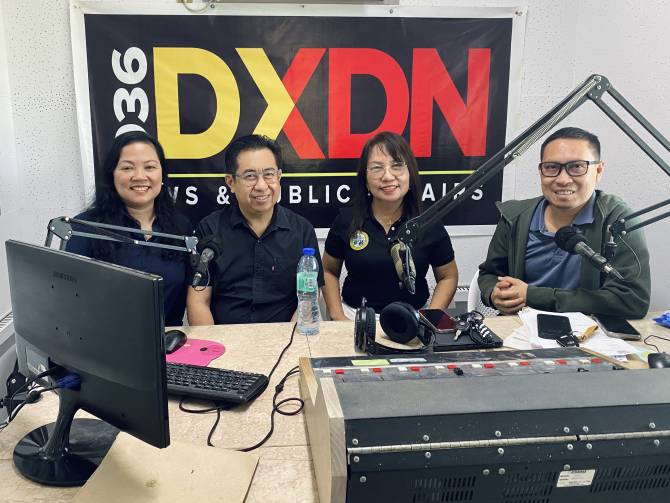Top officials of the 34th Mindanao Business Conference (MinBizCon 2025) took center stage in a guesting segment on DXDN Radio this morning, laying out the vision, themes, and momentum behind the region’s biggest business event, slated for August 27–29 in Tagum City. Organized by the Philippine Chamber of Commerce and Industry (PCCI), MinBizCon 2025 seeks to unify business communities, amplify innovation, and attract investments to shape a resilient and forward-thinking Mindanao.
Conference Director Engr. Sean Gellangarin emphasized that MinBizCon is designed not just as a policy forum but as an engine for partnerships, direct investments, and product showcasing. With both MSMEs and established enterprises participating, the event provides a powerful springboard for regional and international investors to discover local strengths and emerging opportunities. PCCI Mindanao Governor Nenita Malbas echoed this sentiment, underscoring how the conference elevates grassroots concerns to broader economic platforms, empowering entrepreneurs to co-create solutions through plenaries and forums. By fusing business experience with community engagement, MinBizCon positions itself as a catalyst for inclusive growth and long-term development.
Tagum City, returning as host after a successful run in 2018, is poised to shine again. As a leading driver of business transformation in the region, Tagum aims to reintroduce itself as Mindanao’s ideal destination for investors. Communications Chair Admarie Marcelo highlighted the city's efforts to boost MSME growth and cross-sector collaboration under the stewardship of the Tagum City Chamber of Commerce. With its track record in hosting high-impact events and its commitment to building sustainable enterprise ecosystems, Tagum is set to deliver a dynamic, future-ready business climate.
MinBizCon 2025 will tackle five priority sectors: Renewable Energy, Electric Vehicles, Agriculture Modernization, Digitalization and AI, and the Halal Economy. These industries were chosen for their relevance to Mindanao’s economic roadmap. From Agriculture 4.0 to tech-driven efficiency, the plenaries will dive into innovation grounded in local realities. Malbas revealed that energy discussions will present actionable models tailored to Mindanao's supply challenges, while Marcelo noted that the Halal Economy segment will spotlight products beyond food—cosmetics, wellness, and fashion—inviting business leaders to explore new markets. Digitalization and AI, backed by the Mindanao Development Authority (MINDA), will push tech integration to sharpen regional competitiveness and foster smart infrastructure.
